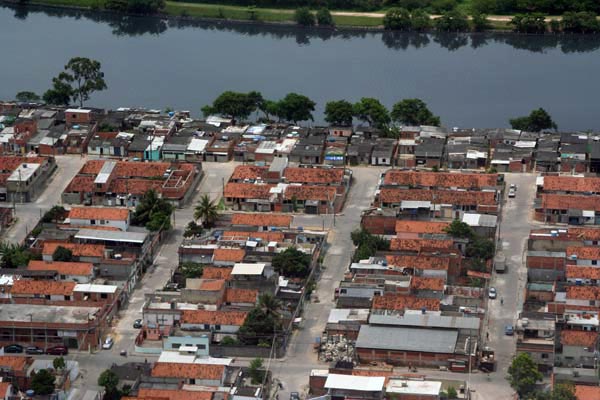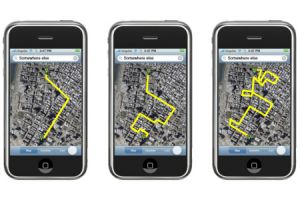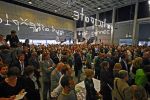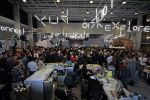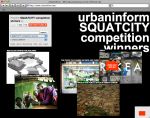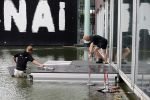Fr 06 Nov 09
Expert Meeting – Sentient City Workshop
Computing has left the desktop and spills out onto the sidewalks, streets and public spaces of the city. Information processing is increasingly embedded in the material fabric of everyday urban space. We approach an age of urban information systems capable of sensing and responding to events and activities transpiring around them. This is the ‘Sentient City‘. What does this emerging Sentient City mean for urban culture? Few people will quibble about ’smart’ traffic light control systems that more efficiently manage mobility. Some may be irritated when discount coupons for their favorite espresso drink are beamed to their mobile phone as they pass by Starbucks. Many are likely to protest when they are denied passage through a subway turnstile because the system ’senses’ that their purchasing habits, mobility patterns and current galvanic skin response (GSR) reading happens to match the profile of a terrorist.
Registration for this workshop has closed. It is no longer possible to register for the workshop.
You are cordially invited to attend the public presentation of the workshop results and the opening of Mark Shepard’s Sentient City Survial Kit, Friday November 6th 17:00, Netherlands Architecture Institute Rotterdam.
12:00-17:00 Workshop introduction and sessions
(see: pdf 'participants workshop Sentient Rotterdam.)
17:00-19:00 Public presentation + opening exhibit Sentient City Survival Kit.
Workshop
How might we envision new technologies and ways of using them that are capable of enacting new urban organizations and spatial experiences that are diverse, sustainable and dynamic? This workshop aims to develop situated approaches toward urban computing and locative media applications, systems and infrastructures for near-future urban life in Rotterdam. Participants will work towards a scenario that involves a product, an intervention or process that is based on (or purposely evades or diverts) a (expected?) sentient technology. The scenarios depart not from the technology itself, but rather from imagined goals, desires or issues of urbanites. Participants (from various field such as new media design, architecture, urban planning, and academia) are asked to bring in one or more issues from their own professional practice. Ideally, these scenarios depart from the actual local context of Rotterdam. The workshop ends with a public presentation and display of results at the ‘Open Podium’ of the Architecture Biennale.
Method
Methodologically, we encourage the approach of a ‘critical design’. The scenarios do not have to be immediately practically feasible, as long as they invite reflection on commonly understood preconcpetions and expectations and provoke new ways of thinking about the objects or process central to the scenarios, the cultural practices that shape them and the larger issues of urban culture they address. Mark Shepard’s own Sentient City Survival Kit which is exhibited at the NAi can be referred to as an example of this approach.
How to apply
Registration for this workshop has closed. It is no longer possible to register for the workshop.
About Mark Shepard
Special guest of our workshop is Mark Shepard. Mark Shepard is an architect, artist and researcher. He directs the Media Architecture Computing program at the Univeristy of Buffalo, and recently curated the exhibit ‘Toward the Sentient City‘ that was organized by the Architectural League of New York . He is also one of the editors of the The Situated Technologies Pamphlet Series.
Earlier this year The Mobile City published an interview with Mark Shepard.
More about the IABR
The theme of the 4th International Architecture Biennale Rotterdam is the Open City, a city that is diverse, lively and socially sustainable, where people can productively relate to each other culturally, socially, as well as economically. More specifically, with the theme Open City: Designing Coexistence, the 4th IABR raises the question of social cohesion in the city from the point of view of its designer: how can architects and urbanists make realistic contributions to the sustainable quality of the urban condition.
About the Connectivity Theme
With the theme ‘Connectivity’ the IABR examines the role of digital media technologies in urban culture. Can these technologies be applied to contribute to the Open City? Or are they endangering its ideals? How can architects and designers anticipate and take advantage of these new technologies?
About The Mobile City
The Mobile City is a knowledge network founded by Martijn de Waal & Michiel de Lange, focussing on the question what happens to urban culture when physical and digital spaces blur? See: http://www.themobilecity.nl. For more information contact info@themobilecity.nl
